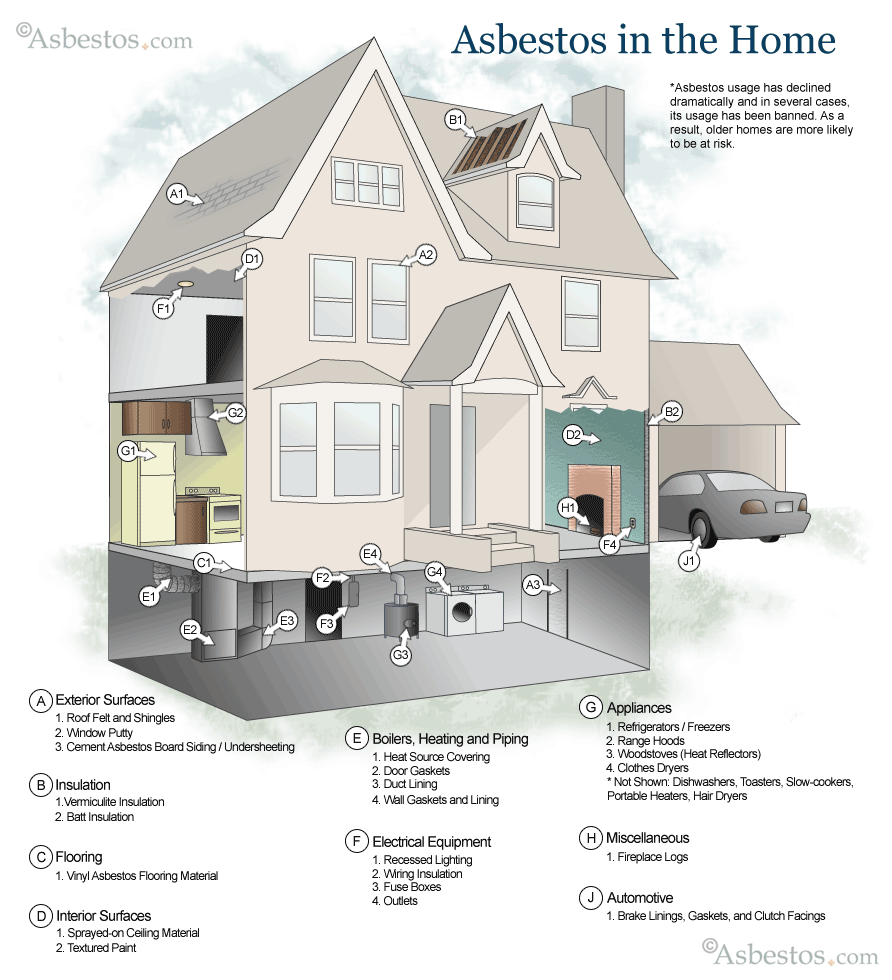
The path to purchasing a new home is a huge accomplishment that requires additional responsibilities. For many, it is the investment of a lifetime, insuring you and your family will have a safe and healthy home for a long foreseeable future.
Asbestos is a fibrous mineral that was a prominent building application throughout the 20th century. If your home was built before 1980, there is a chance it may contain asbestos.
Potential Virginia home owners or those seeking to remodel older homes should not be devastatingly worried because with proper precautions, exposure to asbestos will be prevented easily.
In Arlington, VA, many asbestos problems have been associated with siding and tiles. Used heavily in homes and buildings until its ban in the 1970’s, asbestos siding can become a health concern when its shingles are damaged. If they are left un-disturbed, they are not a serious problem. The risk involved with asbestos materials is the chance that they become damaged and its fibers become airborne.
If suspected asbestos materials are located in your home, most experts will recommend to leave it alone. Unless sawed, cut or disturbed, asbestos products are probably not going to release its fibers. With a growing amount of education and awareness, there are now many green health alternatives that make the use of asbestos obsolete.
Consistent and long term exposure to asbestos has been known to cause rare, but severe lung ailments such as asbestosis and pleural mesothelioma. The asbestos scandal was one of the joint corporate and industry cover-ups in the 20th century. Research has indicated it can take anywhere from 20 to 50 years for mesothelioma to develop, making mesothelioma prognosis a difficult task.
GREEN Alternatives Benefit Home Owners
Many home owners and real estate personnel are unaware to the fact that environmentally sustainable products can also reduce annual energy costs by 25 to 35 percent. Many U.S. cities have created lumberyards which re-store where you can purchase recycled building materials that are authentically strong and inexpensive. Green alternatives to asbestos include the use of cotton fiber, lcynene foam and cellulose.







